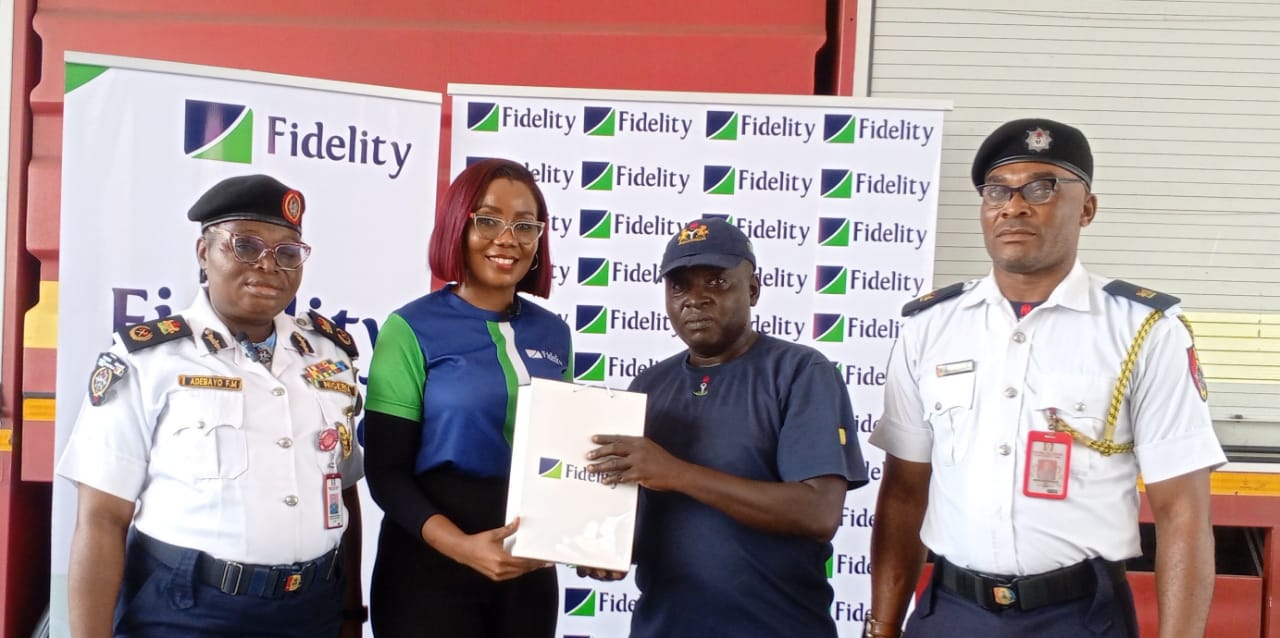Business
Nigerians Lose N150.46bn in Two Months of Twitter Ban

Nigeria businesses may have lost N150.46bn ($366.88m) since the Federal Government’s ban on Twitter took effect in the country on June 5.
This figure was calculated based on the NetBlocks Cost of Shutdown Tool. According to the tool, it costs Nigeria’s economy N102.77m ($250,600) every hour to ban Twitter.
It has been 1,464 hours (61 days) since the ban. In that time period, Nigeria may have lost N150.46bn.
The NetBlocks Cost of Shutdown Tool estimates the economic impact of an internet disruption, mobile data blackout or app restriction in a nation using indicators from the World Bank, International Telecommunication Union, Eurostat and U.S. Census.
The Federal Government had on June 4 announced the suspension of Twitter in Nigeria. Telecommunication companies started blocking access to Twitter on June 5, after they received a directive from the Nigerian Communications Commission to block access to Twitter.
The FG had cited the persistent use of the platform for activities capable of undermining Nigeria’s corporate existence as the reason for the suspension.
Following the ban, groups including the Socio-Economic Rights and Accountability Project, had dragged the Federal Government to the ECOWAS court.
The Federal Government told a Federal High Court in Lagos that it had not stopped Nigerians from using Twitter, adding that many Nigerians still used it every day.
This was in a counter-affidavit the government deposed to in response to an originating motion filed by human rights lawyer, Inibehe Effiong.
The affidavit said, “The applicant (Effiong) and the class he seeks to represent can still operate those Twitter accounts from anywhere in the world and even from Nigeria.
“Nigerians are still tweeting, even at this moment as the ban on Twitter is not aimed at intimidating Nigerians or an infringement on the rights of Nigerians to express their opinion.”
According to a report by Statista, Nigeria has about 33 million active social media users, with about 26 per cent on Twitter.
Since the ban, some Nigerians have migrated to the use of Virtual Private Networks.
ExpressVPN said in June that it recorded an increase of over 200 per cent in web traffic from Nigeria since the Federal Government banned Twitter.
VPN works by changing the location of devices they run on. Small and Medium-sized Enterprises have said this has not been good for their businesses.
In a report in The PUNCH, financial planner, Kalu Aja said, “Social media enables the brand to talk directly to consumers. It’s direct marketing, specific and targeted. There is no organisation on earth, profit or not-for-profit, without some form of advocacy via social media.
“The Twitter ban raises a narrative about doing business in Nigeria, and it’s not a good narrative. Specifically, Twitter and social media allow Small and Medium-scale Enterprises and sole proprietors with zero marketing budgets but a smartphone to build and communicate a brand promise.”
Olanregun Ayodele who sells women’s and men’s clothing on Twitter said, “Twitter was very important to my business. I got a lot of customers from Twitter.
“I can’t put an amount to it. But I have made money to sustain myself and my family from Twitter. Since the ban began, business has been stressful and tiring. Business is dry. Normally the end of the month is always booming but since the ban, it’s been so slow.
“People coming to my DM have reduced a lot; VPN has reduced lots of people and followers on Twitter.”
Another SME entrepreneur, Babatunde Motunrayo, who sells female accessories on Twitter said, “Twitter was very helpful. I got 75 per cent sales here, compared to other apps I sell on. I use Instagram too but make more sales from Twitter.
“It’s not been the same. Sales have been poor. Having to turn on and off your VPN most times makes you reply to clients late and before you know it, you’ve lost the client because some say they’ve got it from another vendor. Sometimes you won’t get messages early. Some people stopped using Twitter outright.”
The Punch
Business
FirstBank Launches 500-Seater Bleacher at Carnival Calabar & Festival 2025

West Africa’s premier financial institution and financial inclusion services provider, FirstBank, has officially announced its sponsorship of the Carnival Calabar & Festival 2025, unveiling a landmark addition set to redefine the carnival experience — the first-ever private premium seating area at the event.
The highlight of FirstBank’s participation is the construction of a 500-seater premium bleacher, designed to provide comfort, safety, and an elevated viewing experience for carnival enthusiasts.
Speaking on the sponsorship, the Acting Group Head Marketing and Corporate Communications, FirstBank, Olayinka Ijabiyi, noted that the carnival aligns with the Bank’s First@Arts initiative, a platform dedicated to supporting the creative arts value chain across Nigeria. He said, “We recognise the transformative power of the arts, including carnivals, in inspiring people and strengthening national unity. For more than 131 years, we have supported platforms that promote self-expression, social reflection and cultural exchange. Our investment in the Carnival Calabar & Festival demonstrates our commitment to preserving the nation’s rich cultural heritage through First@Arts.”
“As part of our sponsorship this year, we are introducing the first-ever private 500-seater premium bleacher to further elevate the carnival experience. This exclusive seating is designed to provide exceptional comfort and an unforgettable viewing experience for attendees,” Ijabiyi added.
The Chairman of the Cross River State Carnival Calabar Commission, Gabe Onah, also commented on FirstBank’s sponsorship. “FirstBank’s involvement is a strong demonstration of private-sector support for culture and tourism. This partnership not only enhances the overall quality of the carnival but also strengthens its global appeal,” he said.
The Carnival Calabar & Festival 2025 is officially marketed by Okhma Global Limited, the appointed Official Marketer responsible for brand partnerships, promotional engagements, and ticket sales. Okhma Global Limited has partnered with the Cross River State government in delivering Carnival Calabar & Festival for over ten years, playing a key role in strengthening the carnival’s commercial growth and global visibility.
Business
Yuletide: Ecobank Urges Vigilance, Guarantees Seamless Banking

Ecobank Nigeria, a member of Africa’s leading pan-African banking group, has assured customers of uninterrupted access to banking services throughout the year-end holiday period via its secure and robust digital platforms. The Bank also urged customers to remain vigilant against fraud and scams during the festive season.
Speaking on the development, Victor Yalokwu, Head, Products & Analytics, Consumer & Commercial Banking, Ecobank Nigeria, said the Bank’s digital channels — including the Ecobank Mobile App, Ecobank Business App, USSD *326#, Ecobank Online, OmniPlus, Omnilite, EcobankPay, RapidTransfer, Ecobank Cards, ATMs, PoS terminals, and over 35,000 Ecobank Xpress Point (Agent Banking) locations nationwide — will remain fully available to support customers throughout the yuletide and year-end holiday period.
He noted that customers will continue to enjoy a wide range of services during the period, including local and international funds transfers, bill payments and airtime top-ups, merchant payments, balance inquiries and account statements, as well as cardless cash withdrawals via ATMs.
According to Yalokwu, “Ecobank encourages customers to leverage these digital solutions for safe, fast, and efficient banking, especially during the festive season when convenience and reliability are essential. While physical branch operations may be subject to adjusted working hours in line with public holidays, customers can be assured that Ecobank’s digital platforms are designed to deliver uninterrupted service and enhanced security at all times. Ecobank remains committed to providing innovative financial solutions and exceptional customer service, and we wish all our customers a joyful festive season and a prosperous New Year.”
Yalokwu also cautioned customers to remain vigilant against fraudsters and scammers during the period. “Before you wrap up the year, tighten your security. December brings online sales, travel, and year-end distractions—this is exactly when scammers are most active. From fake festive deals to cloned merchant sites and suspicious messages, staying vigilant helps keep your money safe.”
He advised customers to shop only on trusted websites, never share their PINs, passwords, or one-time passwords (OTPs), avoid banking on public Wi-Fi networks, be cautious of urgent or emotionally charged messages, and regularly review their account activity.
Business
Fidelity Bank Donates Hoses, Water Pumps to Fire Service

Fidelity Bank Plc has donated firefighting and preventive equipment, including hoses and gasoline-powered water pumps, to the Ikoyi Fire Service Station in Lagos, reinforcing efforts to improve emergency response and promote community safety.
The donation was executed under the Fidelity Helping Hands Programme (FHHP) by the bank’s True Serve team. Through the initiative, Fidelity Bank employees identify critical community needs, raise funds, and receive matching financial support from the bank to implement impact-driven projects.
Speaking on the initiative, Divisional Head, Brand and Communications Division at Fidelity Bank, Dr Meksley Nwagboh, said the intervention reflects the bank’s commitment to public safety, environmental protection, and sustainable community development.
“Community safety is a shared responsibility. Fidelity Bank remains committed to supporting initiatives that protect lives, property, and the environment,” Nwagboh said, adding that preventive measures remain more effective than emergency responses.
He noted that providing the right tools to first responders aligns with the bank’s broader goal of enabling people to live safe, meaningful, and empowered lives.
Lagos State Controller of the Federal Fire Service, Controller of Fire (CF) Funke Adebayo, commended Fidelity Bank for the timely support, particularly as the festive season approaches amid dry weather conditions that heighten fire risks.
She urged residents to remain vigilant and warned parents against allowing children to handle fireworks during celebrations, stressing that careless handling of fire could lead to avoidable disasters.
Adebayo also disclosed that the Fire Service has intensified sensitisation visits to corporate organisations to promote fire safety and discourage unsafe practices.
Also speaking, Area Commander, Onikan Fire Station, Chief Superintendent of Fire (CSF) Oswere Michael, expressed appreciation for the donation, noting that it would strengthen the station’s operational capacity.
He encouraged households, businesses, and community members to prioritise fire safety, describing collective responsibility as critical to preventing fire outbreaks.
Fidelity Bank Plc is a full-fledged commercial deposit money bank serving over 9.1 million customers through its digital platforms, 255 business offices across Nigeria, and its UK subsidiary, FidBank UK Limited. The bank has received multiple local and international awards in recognition of its performance in digital transformation, MSME banking, and innovative financial services.
Photo – L-R: Lagos State Controller, Federal Fire Service, CF (Controller of Fire), Adebayo Funke; Tolulope Rojaiye, Marketing Business Partner, Fidelity Bank Plc; Assistant Superintendent of Fire, Ishola Folorunsho Olufemi; and Station Commander, Onikan Fire Station, Lagos, Okeke Ferdinand; during the donation of firefighting equipment to the Federal Fire Service at Ikoyi, Lagos, recently.






